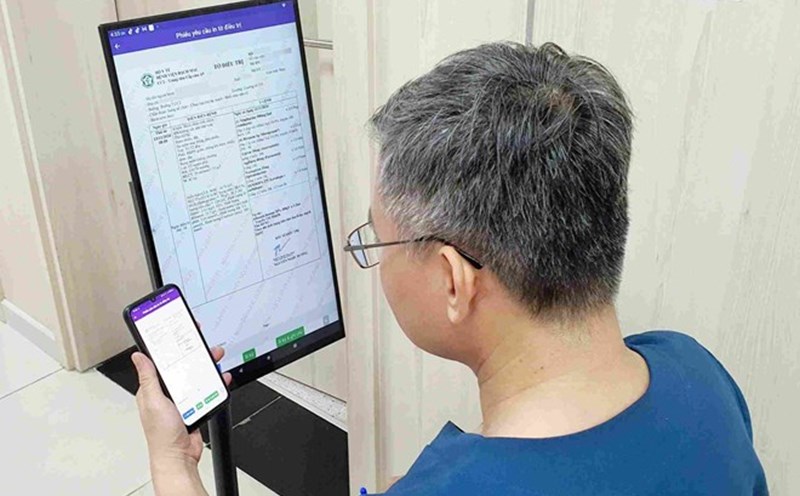Medical facilities speed up prescription of electronic drugs
After the Ministry of Health issued regulations requiring electronic prescriptions, many hospitals in Ho Chi Minh City have accelerated the implementation.
According to statistics from the Ho Chi Minh City Department of Health, most public hospitals in the area have completely integrated the electronic prescription system into hospital management software (HIS), seriously implementing Circular 26/2025/TT-BYT of the Ministry of Health on prescribing pharmaceuticals and biological products for outpatient treatment. Medical facilities have agreed on drug prescription forms, strictly control addictive drugs, psychology and ensure that each examination only prescribes one prescription, within the correct time limit for use.
Notably, the new regulation allows chronic patients to be prescribed a maximum of 90 days if their health is stable and has been applied synchronously by hospitals. This regulation helps patients save costs, reduce unnecessary re-examination visits and is especially meaningful for the elderly, people with disabilities, and people in remote areas.
The Ho Chi Minh City Department of Health also closely coordinates with hospitals, the City Social Insurance and related units to monitor the implementation, ensure professional efficiency, safety for patients and compliance with health insurance payment regulations. Hospitals must complete the electronic prescription roadmap before October 1, 2025, and other medical facilities must complete it before January 1, 2026.
In Hanoi, the City People's Committee has issued a plan to deploy electronic medical records at all hospitals in the area, requiring completion before September 2025. 100% of hospitals must apply electronic medical records, ensuring data connection between facilities. Hospitals need to update the list of medical terminology, share data with platforms such as Electronic Health Book, prescription, referral form... The City People's Committee requires units to assess the current status of technology infrastructure, develop a suitable implementation plan and invest in upgrading before September 30, 2025.
Increasing control of drug sales, standardizing prescriptions by connecting electronic data
According to Dr. Vuong Anh Duong - Deputy Director of the Department of Medical Examination and Treatment Management (Ministry of Health), proper implementation of the new Circular will help the prescription and sales system to be connected, strictly controlling the sale of prescription drugs, especially antibiotics. Incorrect prescriptions and sales can be clearly monitored.
A notable point in Circular 26 is the requirement to integrate personal identification numbers into prescriptions. This helps synchronize medical data with the national population system, simplify procedures and limit errors when prescribing. When using an identification number, information such as full name, date of birth, address... will automatically appear, helping to save time for both patients and medical staff.
In addition, the Circular also clearly stipulates that the person prescribing the drug must specifically state the dosage, the number of times the drug is used per day and the number of days of use. These new guidelines are updated according to the Law on Medical Examination and Treatment 2023, emphasizing the designation of drugs for the right purpose, reasonably and safely. At the same time, the Ministry of Health also clarified the process of handling addictive drugs, spirit drinks or drugs that have not been used when the patient passes away.
In the coming time, the Ministry of Health will increase technical support, software updates and especially focus on grassroots health care to ensure synchronous implementation throughout the system.











